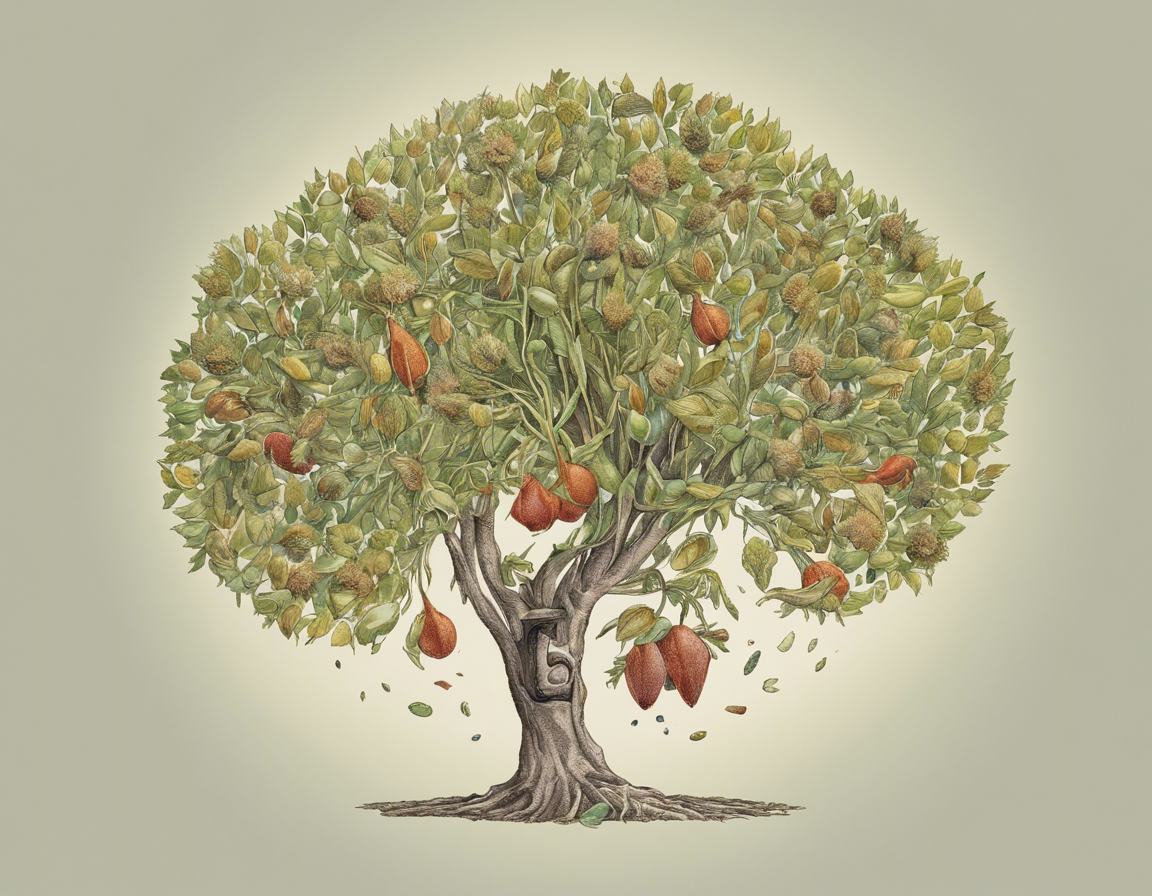Introduction
Seeds have been consumed by humans for thousands of years due to their nutritional value and health benefits. Among the various types of seeds available, flaxseeds, chia seeds, pumpkin seeds, sunflower seeds, and sesame seeds stand out for their versatile applications in both culinary and wellness realms. These seeds are powerhouses of essential nutrients, healthy fats, and antioxidants that can boost overall health and well-being. In this article, we will delve into the health benefits of these 5 seeds, explore their culinary uses, and provide inspiration for incorporating them into your diet.
Flaxseeds:
Flaxseeds are rich in omega-3 fatty acids, fiber, and antioxidants. They have been linked to numerous health benefits, including improved heart health, digestion, and reduced inflammation in the body. Flaxseeds are also a good source of lignans, which have anticancer properties. Incorporating flaxseeds into your diet can be as simple as adding them to smoothies, oatmeal, or baked goods.
Chia Seeds:
Chia seeds are tiny powerhouses packed with fiber, protein, omega-3 fatty acids, and various micronutrients. These seeds have the unique ability to absorb liquid and form a gel-like consistency, making them a popular choice for making chia seed pudding or as a thickening agent in recipes. Chia seeds have been associated with improved digestive health, weight management, and sustained energy levels due to their balanced nutritional profile.
Pumpkin Seeds:
Pumpkin seeds, also known as pepitas, are a nutritious snack option due to their high protein content, healthy fats, and minerals such as iron and magnesium. These seeds are often roasted and seasoned for a crunchy and flavorful snack. Pumpkin seeds have been linked to improved prostate health in men, lower blood sugar levels, and enhanced immune function.
Sunflower Seeds:
Sunflower seeds are a good source of vitamin E, healthy fats, and phytosterols that can benefit heart health by lowering cholesterol levels. These seeds are versatile and can be enjoyed roasted as a snack, sprinkled on salads, or used to make sunflower seed butter as an alternative to peanut butter. Sunflower seeds can support skin health, brain function, and reduce inflammation in the body.
Sesame Seeds:
Sesame seeds are rich in healthy fats, protein, fiber, and antioxidants. They are commonly used in Asian cuisines and are a good source of calcium, which is important for bone health. Sesame seeds can be sprinkled on top of stir-fries, salads, or used to make tahini, a paste commonly used in Middle Eastern dishes like hummus. These seeds may help reduce inflammation and support hormonal balance in the body.
Culinary Inspiration:
-
Seed Mix: Create your own seed mix by combining flaxseeds, chia seeds, pumpkin seeds, sunflower seeds, and sesame seeds. Sprinkle the mix on top of yogurt, salads, or oatmeal for a nutrient boost.
-
Seed Crackers: Make homemade seed crackers using a mixture of ground flaxseeds, chia seeds, and sesame seeds. These crackers are gluten-free and make a delicious snack or appetizer.
-
Seed Butter: Experiment with making your own seed butter using a blend of sunflower seeds and pumpkin seeds. Spread the butter on toast or use it as a dip for fruits and veggies.
-
Seed Encrusted Proteins: Coat fish, chicken, or tofu with a mixture of ground seeds for a crunchy and flavorful coating. This adds texture and nutrition to your meals.
-
Seed Pudding: Mix chia seeds with your choice of milk and sweetener to create a creamy pudding. Top it with fresh fruits, nuts, or granola for a nutritious breakfast or dessert option.
Frequently Asked Questions (FAQs):
-
Q: Can I consume these seeds if I have nut allergies?
A: Yes, seeds are generally safe for individuals with nut allergies as they are botanically different from nuts. However, cross-contamination may still occur, so it’s essential to check labels and opt for certified allergen-free products if needed. -
Q: How can I store seeds to maintain their freshness?
A: Store seeds in airtight containers in a cool, dark place to prevent them from going rancid. Refrigeration can help extend the shelf life of seeds, especially ground flaxseeds. -
Q: Are there any risks associated with consuming these seeds?
A: While seeds offer numerous health benefits, some people may experience digestive issues like bloating or gas due to their high fiber content. It’s essential to introduce seeds gradually into your diet and drink plenty of water to support digestion. -
Q: Can I use these seeds in baking recipes as substitutes for other ingredients?
A: Yes, seeds can be used in baking recipes as substitutes for eggs (chia or flax seeds as a “binding” agent), breadcrumbs (ground seeds as a crunchy coating), or nuts (seed butter as a spread or filling). -
Q: Are there any specific recipes that highlight the unique flavors of these seeds?
A: You can try recipes like flaxseed banana bread, chia seed lemonade, pumpkin seed pesto, sunflower seed hummus, or sesame seed-crusted tofu to experience the distinct flavors and nutritional benefits of each seed.
In conclusion, incorporating flaxseeds, chia seeds, pumpkin seeds, sunflower seeds, and sesame seeds into your diet can offer a diverse range of health benefits and elevate the flavors of your meals. Experiment with different culinary creations to unlock the full potential of these nutrient-dense seeds and enhance your overall well-being.
